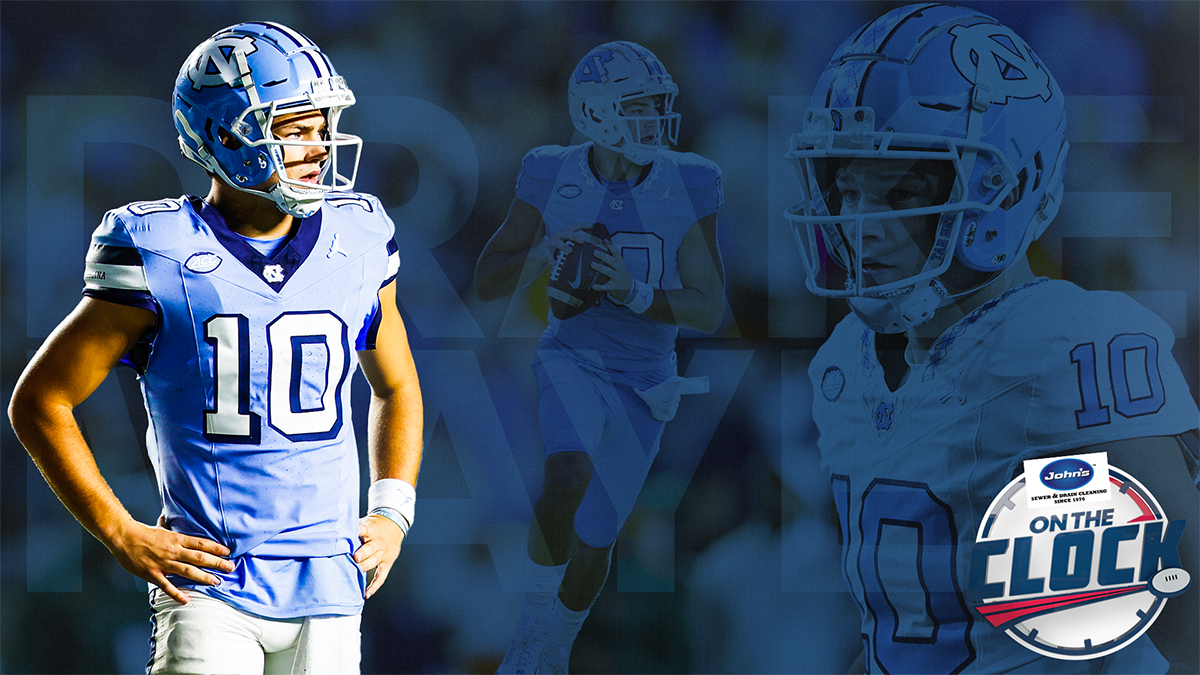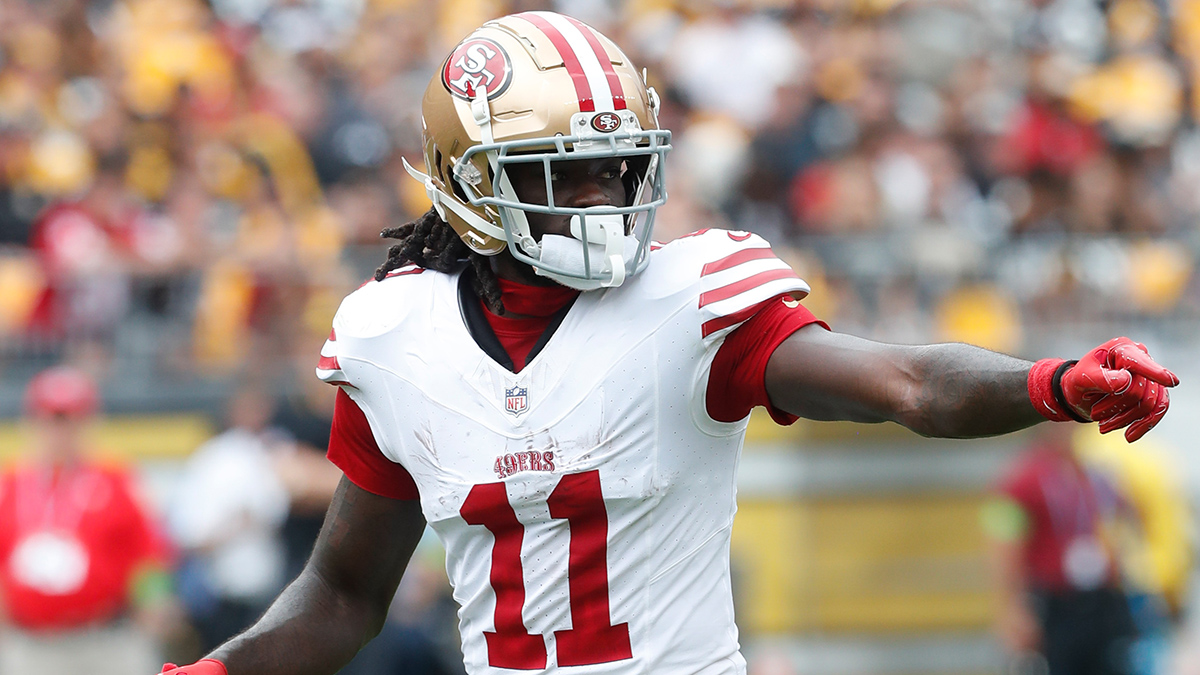If you asked Bill Belichick his opinion of Tom Brady’s media tour this week – Player’s Tribune, Howard Stern – he’d probably snort and wonder why it’s necessary in the first place. Why feed the jackals at all?
But for Brady, not having to ask Belichick’s permission to speak freely (or to deal with the passive-aggressive consequences if he failed to) must be liberating.
Download the MyTeams app for the latest Patriots news and analysis
Which is a little sad for an accomplished 42-year-old in a public position, but that was what it was.
Even if Belichick is somewhere rolling his eyes about newly-liberated Brady unburdening himself, it’s obvious this is not a grievance-airing exercise on Brady’s part.
Will that day ever come? Maybe. There are plenty. But the person Brady’s chosen to be in his adult life doesn’t fixate on negativity. And looking at the rough patches and irritations in his 20-year professional marriage to the Patriots – even if they are salacious and interesting because they are secrets well-kept – isn’t the way he rolls.
He’s a love guy. He’s a Four Agreements guy.
New England Patriots
He is publicly living on the post-Patriots high road as the 129-minute interview with Howard Stern showed on Wednesday.
Here are a few takeaways from the fascinating interview.
IRRECONCILABLE DIFFERENCES
It seemed important to Brady that the takeaway to his leaving the Patriots be the simple fact that his desires as a player and Belichick’s as a GM/team builder were at cross purposes.
It wasn’t primarily because Brady felt unappreciated or disrespected at the bargaining table. If he was hit with the truth serum, Brady would concede they were there, but they were symptoms of how Belichick viewed Brady and as opposed to how Brady viewed himself.
And Brady gave Belichick a complete pass for that.
"I think he has a lot of loyalty,” Brady said. “He and I have had a lot of conversations that nobody has ever been privy to, nor should they be, that so many wrong assumptions were made about our relationship or about how he felt about me. I know genuinely how he feels about me," Brady said.
“Now I'm not going to respond to every rumor or assumption that's made, other than what his responsibility as coach is to get the best player for the team -- not only in the short term but in the long term as well. … I got into uncharted territory as an athlete because I started to break the mold of what so many other athletes had experienced.
“I got to the point where I was an older athlete and he's starting to plan for the future, which is what his responsibility is. I don't fault him for that. That's what he should be doing. Not that I would ever coach, but if I was ever in a position of authority, I would understand that too."
This wasn’t a revelation for anyone paying attention.
In December, I laid out the scenario, writing that:
The Patriots didn’t want to ante up (in 2019) for a 42-year-old quarterback year the same way they didn’t want to ante up for Brady in 2017 when he was 40.
With his 43-year-old season approaching, Brady and his agent Don Yee are going to sit down and ask for a bump to bring him in line with the rest of the league’s best quarterbacks after Brady has one of the worst statistical seasons of his career?
Doesn’t that seem like a request that Bill Belichick would begin to answer with the words, “With all due respect …”?
So where’s that leave Brady? …
Do they even bother sitting down at the table to talk or do they just realize they’ve come to the end of the road?
Do they agree on an amicable divorce because of one irreconcilable difference: Brady believes he can still play at a high level, the Patriots don’t want to take that on faith and don’t love the idea of throwing $25M at the position so Brady can follow that muse.
This season has done nothing to bring the two sides closer together.
What the two sides are headed for isn’t about Sunday’s game or even the 2019 offseason. The night in April 2014 when the team drafted Jimmy Garoppolo and Belichick mentioned Brady’s age and contract status, the die was cast.
People shouldn’t have needed a neon sign pointing them in the direction of what ultimately was going to happen.
Especially after last August.
WHEN THE END WAS NEAR
Brady went into training camp last July waiting on a contract extension to take him through 2020. It’s what he expected. The truth was spoken in jest when he was asked about it on the first day of camp and he told the media to “Talk to Mr. Kraft…” before adding “hopefully we can keep it going.”
When he didn’t get the extension and only got the raise after it came clear how miffed he was, the gig was up. We discussed it at the time on our podcast and the timing of his Brookline home hitting the market was not a complete coincidence. It happened just days after the extension didn’t come to pass.
As Brady told Stern on Wednesday, “I would say I probably knew before the start of last season that it was my last year," Brady said. "I knew that our time was coming to an end."
Brady’s demeanor in Tennessee when the Patriots showed up for joint practices soon after he agreed to the 2019 raise was somewhat telling. Just Employee No. 12 reporting for duty.
And after Antonio Brown was released, Brady gave an answer to Jim Gray that said exactly that: "The reality is I don't make any personnel decisions. I don't decide to sign players, I don't decide to trade them, I don't decide to release them, I don't decide to draft them. I don't get asked. I show up and I do my job. I'm an employee like everyone else.”
ICING OUT WIDE RECEIVERS
Brady told Stern candidly that there were times he bluntly told his coaches that he wasn’t going to throw to players he didn’t trust.
“I would say, ‘I don’t have any trust this guy can help us win the game,'” Brady said. “I definitely expressed my opinion to say, ‘If you put him out there, I’m not going to throw him the ball.’
“Fortunately for me, coach Belichick always saw it the same way, which is why I think we have such a great connection. He saw football very much the same way I saw it...We saw the process of winning very much the same way.”
That set off a round of recency bias in which folks pointed to first-rounder N’Keal Harry as being a player Brady wasn’t interested in throwing to. That was followed by a round of, “Well, if Tom showed up to OTAs …”
The truth is, Brady was resistant to throwing to guys he didn’t trust for most of his Patriots career. Bethel Johnson, Chad Jackson, Chad Johnson, Joey Galloway, Aaron Dobson, even Chris Hogan for a big chunk of 2018 and Phillip Dorsett this past season all found themselves outside Brady’s circle of trusted targets.
The fact is, Brady’s demands aren’t just high in terms of route precision, he also wants players to be intuitive in their route-running. If something is taken away, they need to see it like he sees it and react. Which is a very hard tightrope to walk for a player who doesn’t want to screw up and piss Brady off.
It will be interesting to see how tolerant Brady is with brand new targets in Tampa who he won’t have the time to develop chemistry with.
LEGACY
Brady dismissed the notion legacy means much to him. And you have to believe him. But that’s now. Winning his fifth Super Bowl meant something because it pushed him past Joe Montana and Terry Bradshaw. Winning his sixth championship tied him with Michael Jordan. He won an MVP at 40 in 2017. If he played a full season in 2016, he probably would have won it that year as well at 39. He won a Super Bowl at 41. His legacy is intact.
Tampa Bay is gravy and he can play with less stress and more enjoyment, it seems.
Listen and subscribe to Tom E. Curran's Patriots Talk Podcast:
“We all think we’re going to live forever but the reality is we don’t know when our day is going to come,” Brady said. “I could stop playing football because I’m worried about what’s going to happen. Why don’t I live my life the way I want, and enjoy it, the way that is most fulfilling to me? For me, that’s doing what I love to do. You don’t tell a musician to stop singing at age 42. You don’t tell a painter to stop painting at 42.”


